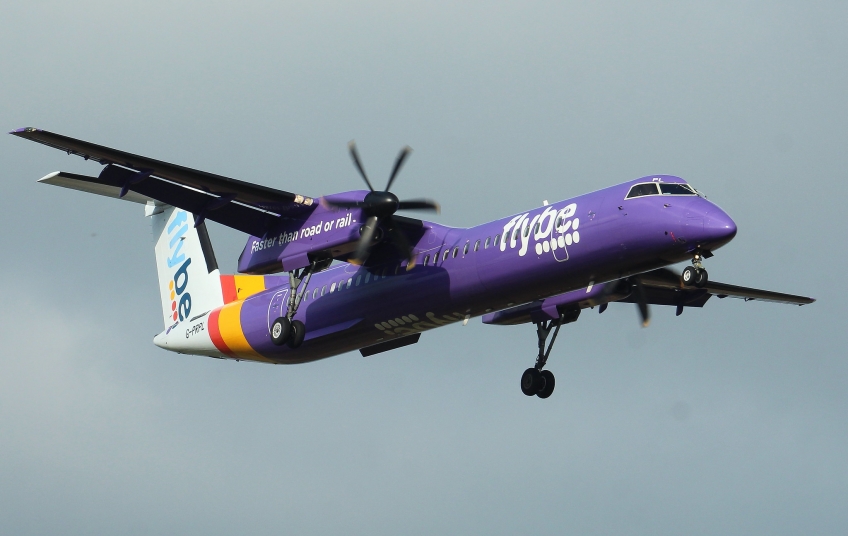The coronavirus epidemic could cost passenger airlines up to $113 billion in lost revenue this year, an industry body warned on Thursday, more than three times a projection it made just two weeks ago as the virus continues to spread around the world.
The warning from the International Air Transport Association (IATA) came as British regional carrier Flybe became the first big casualty of the slump in travel demand due to the crisis and Norwegian Air scrapped its profit forecast for this year.
Airlines across the world are rushing to cut flights and costs, and warning of a hit to earnings, as a new virus that started in China spreads, raising fears of a pandemic that could plunge the global economy into recession.
In a sign of the difficulties this is creating for airlines, a Turkish Airlines jet was flown back to Istanbul without any passengers on board on Thursday on orders from Singapore after a passenger who had arrived on the same plane on Tuesday tested positive for the virus.
IATA projected the hit to passenger airlines in lost revenue from the crisis could be anywhere between $63 billion and $113 billion this year, depending on the virus’s progression. On Feb. 20, it had forecast a hit of $29 billion.
Global airline industry revenues totalled $838 billion in 2019, according to IATA data.
The COVID-19 virus has killed more than 3,000 people and infected tens of thousands more, mostly in China. But the disease has now spread to more than 60 other countries, leading to multiple travel and other restrictions.
Among the latest events to be cancelled is the world air traffic management congress in Madrid, which had been scheduled for March 10-12.
‘INEVITABLE’
The failure of British regional airline Flybe comes less than two months after a rescue deal for the company was agreed by its owners and the UK government.
Despite its commitment to improving regional transport links, the British government backed away from that deal due to the scale of the hit to demand from the virus outbreak.
“All flights have been grounded and the UK business has ceased trading with immediate effect,” Flybe said as it entered administration, a form of protection from creditors.
The failure of the airline, which has long struggled with losses, not only puts around 2,400 jobs at risk but could also see some regional UK airports struggle.
Flybe carried around eight million passengers a year between 81 airports and was owned by a consortium of Virgin Atlantic, Stobart Group and Cyrus Capital.
Its collapse came a day after Ryanair Chief Executive Michael O’Leary predicted that the coronavirus crisis would lead to bankruptcies.
“It’s inevitable in the next couple of weeks we’ll see more failures,” O’Leary told Reuters – citing Flybe as among the most vulnerable.
“Where you have a massive short-term decline in bookings you have a massive short-term decline in cash flow,” he said on the sidelines of an industry event in Brussels on Tuesday.
CANCELLATIONS
Norwegian Air, a pioneer of low-cost transatlantic travel, has also been struggling for years due to cut-throat competition and heavy debts built up during rapid expansion.
The company, which has repeatedly raised cash from shareholders to stay in business, said on Thursday it was scrapping its 2020 earnings guidance, which had predicted a return to profit after three years of losses, due to the drop in travel demand and disruption caused by the virus.
It also said it would cancel 22 long-haul flights between Europe and the United States from March 28 to May 5, with routes from Rome to Los Angeles, Boston and New York seeing a reduced number of departures.
In addition, it will cut the number of flights between London and New York, flying twice, rather than three times, on some days.
“At this stage, it is too early to assess the full impact on our business,” it said in a statement.
Norwegian shares, which have lost more than 50% of their value this year, were down more than 5% at 1000 GMT.
Willie Walsh, the outgoing CEO of British Airways parent IAG , also warned governments this week against any temptation to prop up airlines that were already struggling.
“I don’t believe it’s appropriate for governments to provide state aid to airlines that were not sustainable before the coronavirus,” he said at the Brussels gathering.






